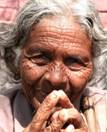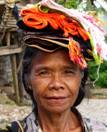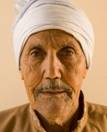|

|
|
UN Open-Ended
Working Group on Ageing Daily Summary - 4
By Bethany
Brown
August 4, 2011
2nd Session of the UN Open-ended
Working Group on Ageing
Closing
Session
The session opened with a review of the gaps explored
through this Second Open-Ended Working Group, and
proposals to address them. Many member states
participated in the discussion, including China, India
and Guatemala.
The four main gaps highlighted were in the norms,
monitoring, implementation, and data surrounding older
persons. Proposed ways forward included: the
promotion of development; further study and data
collection; a review of MIPAA; further analysis of the
social costs of ignoring the rights of older people;
strengthening existing standards at national and
regional levels; further attention from the treaty
bodies, including the development of General Comments;
coordination with the Universal Periodic Review
process for better monitoring; specific attention from
special procedures; a Special Rapporteur (a process
which many emphasized should run in parallel to the
continued exploration of a Convention); and a
Convention as an international response to the
challenges of states in protecting the rights of older
persons.
Some member states expressed the view that existing
mechanisms (i.e., human rights conventions, treaty
bodies and special procedures) are sufficient, though
not fully utilized. Many added that an
additional mechanism would overburden the
already-strained existing framework. The
International Network for the Prevention of Elder
Abuse (INPEA) responded to this, noting that the OEWG
has explored the burdens older people shoulder in the
HIV/AIDS epidemic, with caring for others, and
community work. It has explored the various burdens of
lack of access to justice, healthcare, social services
identification cards, or employment protection,
without a voice in their governments, and decreasing
traditional respect in their communities. INPEA
highlighted the injustice of demonstrating that in the
face of these burdens, older people should not burden
the human rights system with access of their human
rights through a unified framework.
The 10-year review of the Madrid International Plan of
Action on Aging was presented by some states as a
source for information on the world’s older
persons. Argentina urged member states to
remember that MIPAA is not an agreement. As a
plan of action, it does not carry the weight of law,
or articulate human rights.
Brazil noted that in financial crisis, it is those who
are most vulnerable who are the most deeply
affected. Without a binding instrument, a
tendency exists to suppress rights in silent
populations such as older people; populations with
“other status”. This is not an issue of
importance only to developing countries, they
emphasized, it is an issue of retaining rights in
developed countries.
In closing, the moderator noted that in many
countries, there is an absence of adequate legislation
and policy, and where they do exist, they remain
dispersed without a multi-sectoral approach.
Many states have problems implementing national plans
of action on aging. At the international level,
existing rights have not been specifically applied,
and thus proper implementation cannot be
achieved. There was consensus for continued
exploration of the Open-Ended Working Group, and
various expressions of the desire for intensification
of the inquiry.
Submitted by:
Bethany Brown, JD*
Policy and Advocacy Fellow, Help Age USA
*New York Bar Admission Pending

 

|





